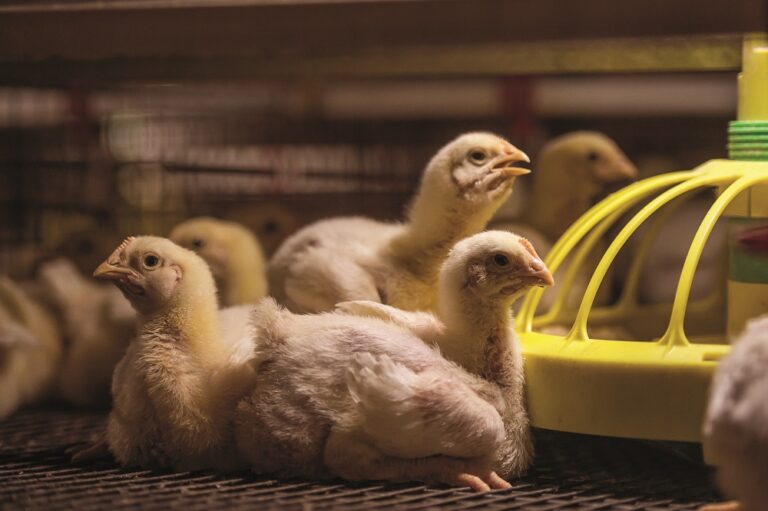Theso Biolink offers advice on how to manage heat stress in poultry
The increase in heat becomes a serious concern to farmers, especially for their poultry, as the summer months arrive, and we endure the scorching weather. Temperatures can reach over 30°C during the summer months, causing heat stress in chickens and further interfering with their performance. When a hot temperature is combined with a high level of humidity, the result can be fatal to chickens. Heat stress will not only affect your hens’ performance, but it can also result in mortality and a loss of productivity and economic loss.
What is heat stress and how does it impact poultry?
Heat stress can affect any type of poultry at any stage of development. It happens when the bird’s body temperature rises to dangerous levels due to inefficient heat dissipation and a lack of coping mechanisms. As the heat and humidity rises, you can find the behaviour of chickens will change greatly too as they attempt to regulate their body temperature. Birds will open their wings to expose non-feathered areas of the body and pant to cool themselves, but as the temperature rises, so does the rate at which they pant, causing more heat to be generated through muscle activity. To stay cool, chickens will drink more water, but not enough to compensate for the losses caused by respiration and urine excretion.
When temperatures are high, poultry consume less food, making life difficult for the birds and resulting in a drop in vitamins and minerals that would otherwise be available through their diet. As a result, birds natural immunity system will be challenged which can increase the risk of diseases which are caused by viral and bacterial vectors, including Salmonellosis, Coccidiosis and E. coli infection.
Food consumption, body weight, egg production, and meat and egg quality all drop in boilers, which is especially worrying. This is also true for breeders, as short-term fertility in both males and females can affect hatchability. Females will be less inclined for mating, putting them under even more stress. This also applies to males, with the quality of semen being diminished and the volume being reduced, resulting in reproductive concerns. As a result, there are fewer viable eggs and chicks.
Heat Stress Management
As the welfare of poultry is the top priority in any production system whether it be broilers, layers or breeders, companies will ensure that they monitor the weather condition well in advance and will manage proactively the schedules. It is still worth noting different ways you can keep your birds cool.
Air flow control:
Providing adequate air movement through ventilation is one of the most critical strategies to keep your flock cool. Increased air flow should be a top focus because it will aid in the removal of heat from the birds. To get a ‘buffer’ in internal and external house temperatures, turn your ventilation on to maximum capacity early in the morning. Birds will avoid moving as much as possible in hot conditions, so walking them frequently might assist release any trapped warm air beneath them. Keep in mind that your flock will seek to cooler areas of the house, such as the exterior walls, where the blockwork will be cooler.
Water management:
In hot environments, birds will naturally increase their water intake. Therefore, the quality of their water supply during the time of extreme weather is vital. It can become very hot very quickly in the water system, so it is a good idea to flush water lines more regularly as this allows the water systems to be replaced with cooler, fresher and more palatable water.
You can also supplement your flock’s drinking water with electrolytes. Birds lose various vitamins and minerals, including magnesium, zinc, and potassium, when they are stressed by the heat. By adding electrolytes to your drinker lines, you may help your bird retain any natural losses that occur when it is not eating to its maximum potential.
Supplementing vitamins, in addition to electrolytes, can help broilers cope with heat stress and reduce mortality. Supplement vitamins can improve egg production and eggshell quality in laying hens, as well as sperm quality in male breeders, when used in poultry breeding.

Previous ArticleSupermarket sales fall 4% in 12 weeks
Chloe Ryan
Editor of Poultry Business, Chloe has spent the past decade writing about the food industry from farming, through manufacturing, retail and foodservice. When not working, dog walking and reading biographies are her favourite hobbies.

